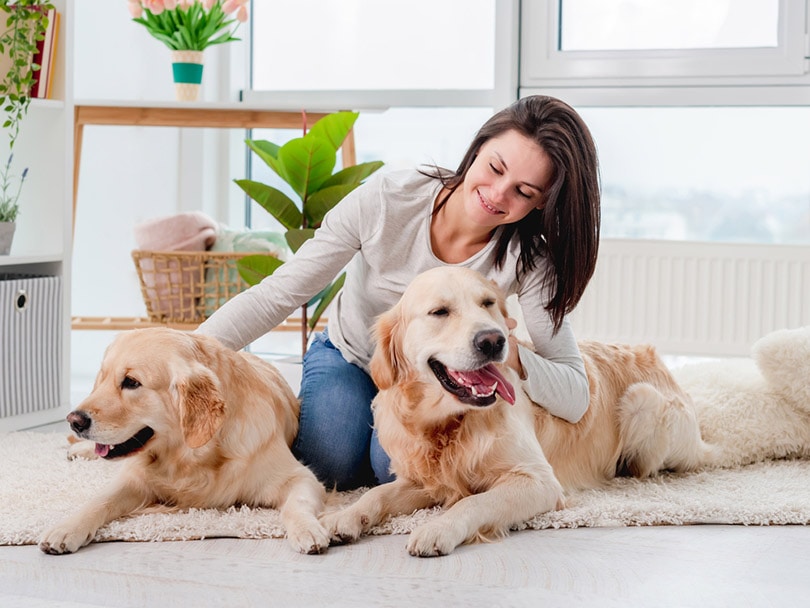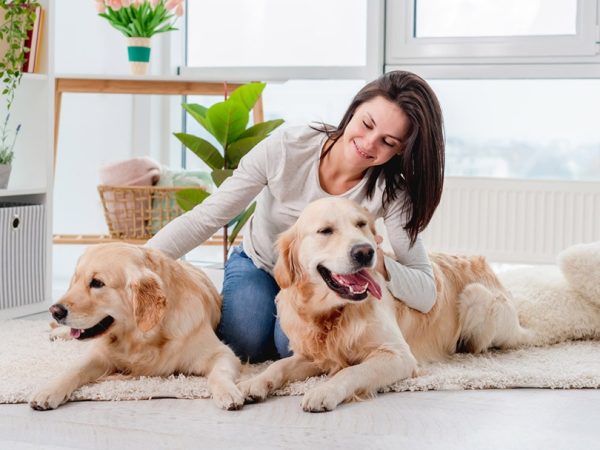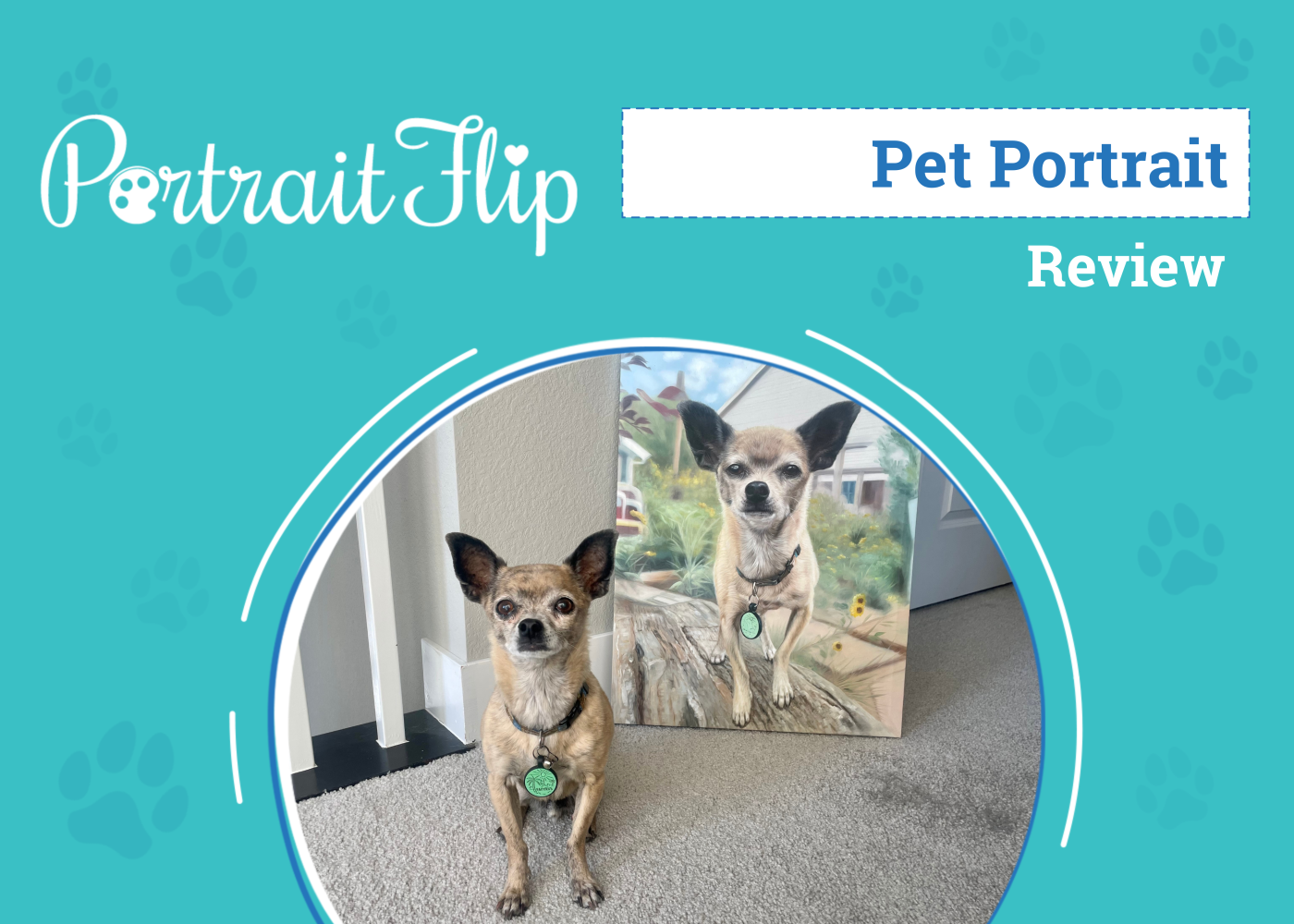It is widely thought that dogs can feel envy and jealousy, as evidenced by their expressions and body language.1 While these emotions may not be as complex as human emotions, they are still fairly evident. Dogs who feel envy or jealousy often show signs such as looking away from the other dog, being less active, or even being aggressive. Some dogs may feel frustrated or sad when they’re around other dogs who have more attention, food, or toys than them.
Read on to find out all about this fascinating emotional reaction in our canine companions.
What Circumstances Might Trigger Envy or Jealousy in Dogs?
It’s important to note that jealousy and envy are not the same things. Jealousy is focused on the other dog’s relationship with the owner, while envy is focused on the dog’s possessions. There are a few different circumstances that might trigger envy or jealousy in dogs. For example, if one dog is receiving more attention from their owner than another dog, the dog that is being ignored may feel jealous.
Additionally, if one dog is being punished while another dog is not, this could also lead to jealousy. Similarly, if two dogs are playing together and one of the dogs becomes more aggressive or wins more often, the other dog may feel envious. If one dog has a better toy or bed, this could also cause envy to arise.
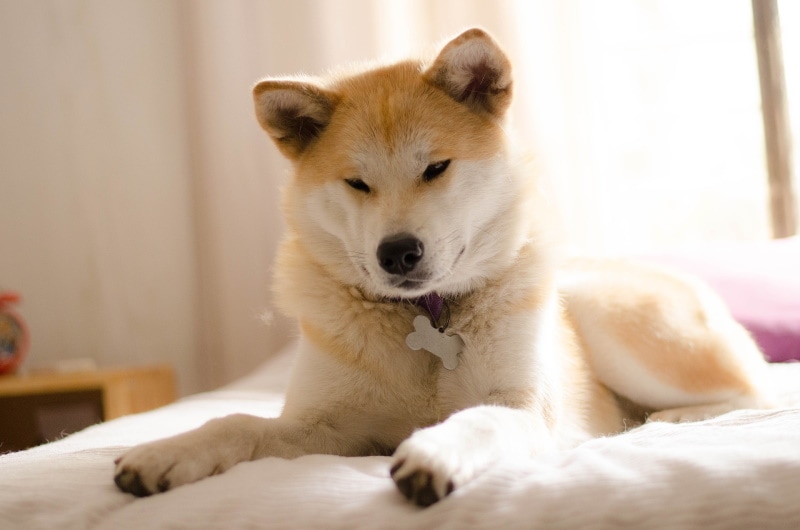
How Do We Know That Dogs Are Capable of Feeling Envy or Jealousy?
The University of Vienna¹ investigated whether dogs show jealousy or envy when one dog is rewarded while the other is not. Dogs were arranged in pairs and sat next to one another during the test. They learned to shake hands by extending their paw and placing it in a person’s hand. Only one dog was rewarded for “shaking hands” per pair. The unfair distribution of rewards caused the unrewarded dogs to refuse to follow commands and stop doing the task when they were jealous or envious. Moreover, when his partner received the reward, the unrewarded dog showed obvious signs of stress.
Some people argue that this is due to exclusion rather than envy or jealousy and is simply caused by unrewarded behaviors. However, a similar experiment was performed without a partner but without rewards to ensure that the interaction between the dogs was more important than their frustration at not getting rewarded. This resulted in the dog continuing to present its paw for an extended period without showing signs of irritation or frustration.
Other Research on Envy & Jealousy in Dogs
In a 2014 study published in PLOS One,¹ psychologists from the University of California, San Diego, modified a test normally used with infants to instead measure jealousy in dogs. Almost three-quarters of dogs pushed or touched their owners when their owners ignored them and instead paid attention to either an animated, stuffed dog or plastic jack-o-lantern. They also reacted aggressively to plush animals, such as growling at them. There was less jealousy of the jack-o’-lanterns, but 40% reacted aggressively, even to the plastic pumpkins!
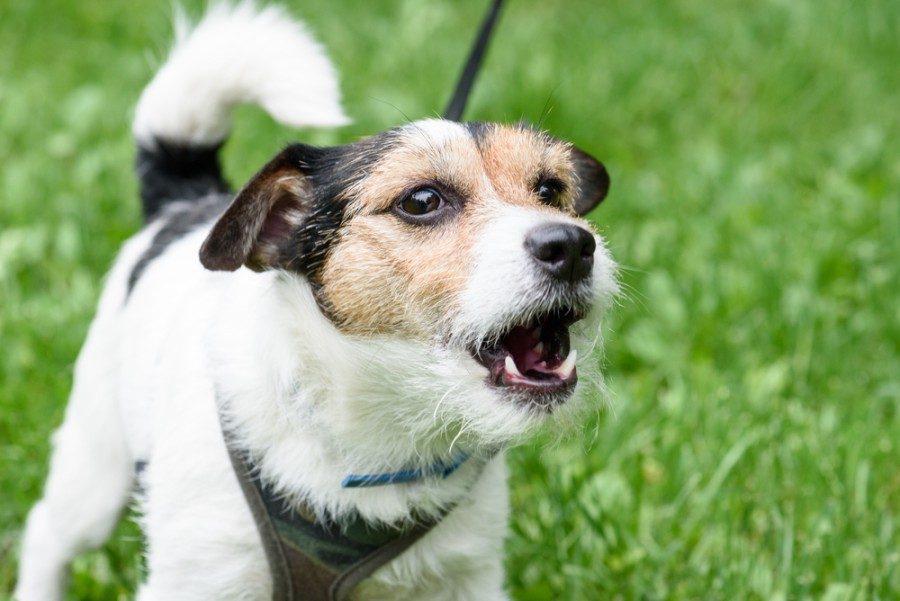
How Do Dogs React When They Feel Envious or Jealous?
There are many signs¹ of jealousy and envy in dogs. The study of envy and jealousy in dogs is a relatively new field of research, but scientists have already made some interesting discoveries about how dogs react when they feel envious or jealous. For example, one study¹ found that when dogs witnessed their owner giving attention to even a hidden rival, they were more likely to bark and pull on their leash, as if they were trying to get the owner’s attention back.
It appears that dogs may react differently to feeling envious or jealous, depending on the situation. For example, if a dog perceives that another dog has something that it wants (such as a toy or food), it may become agitated or aggressive.
Do Dogs Experience the Same Emotions as Humans When it Comes to Envy & Jealousy?
When it comes to envy and jealousy, there is a lot of debate as to whether or not dogs experience the same emotions as humans. Although some research suggests that dogs do experience envy and jealousy, the evidence is not as clear-cut as it is for humans. Some people believe that dogs simply react to certain situations in a way that makes us assume they are feeling envy or jealousy but that they do not actually have those emotions.
Usually, this is referred to as a competitive situation where your pet is competing with another individual—a human, dog, cat, or anything else—for something they want. Others argue that since dogs share many of the same physical and behavioral characteristics as humans when it comes to envy and jealousy, it is safe to say that they do experience those emotions.
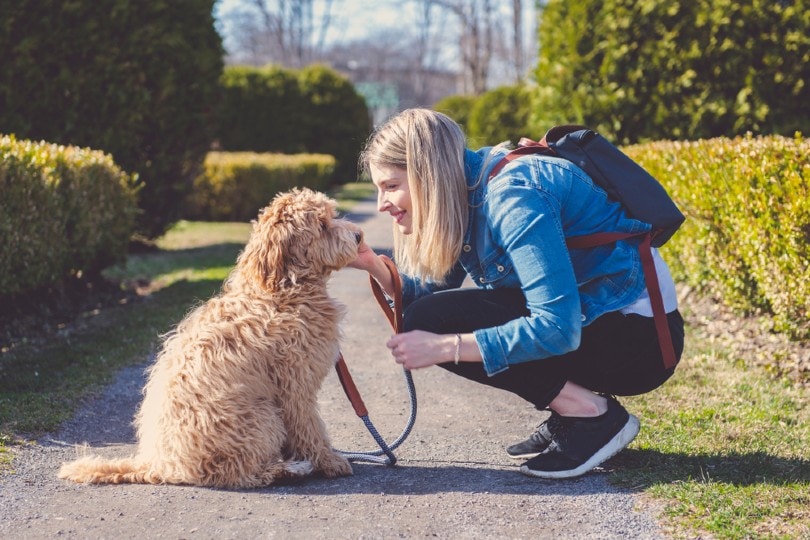
Can Owners Help Their Dogs Overcome Envy or Jealousy?
When two dogs are best friends, and one is suddenly given a toy or treat that the other dog wants, it can cause envy or jealousy. Owners can help their dogs overcome envy or jealousy by reassuring their dogs that they are still loved and by training them to share toys and treats. Many dog owners may have experienced their dogs becoming envious or jealous of other family members, guests, or even other dogs.
It is important to note the circumstances in which these behaviors occur, as they can be indicative of deeper issues. In some cases, envy or jealousy may be symptomatic of insecurity on the part of the dog and can be addressed through positive reinforcement and training. In more serious cases, however, envy or jealousy may be indicative of a more serious behavior problem such as dominance aggression, and professional help should be sought.
Final Thoughts
In conclusion, there is no definitive answer to whether or not dogs can feel envy or jealousy, but there is certainly evidence that suggests they can. Dogs may not understand the complex emotions that humans experience when they feel envious or jealous, but they do experience similar feelings of frustration and anger. Although there is evidence that suggests that dogs may be capable of experiencing these emotions, further research is needed in order to determine whether or not this is truly the case.
If you are a dog owner, it is important to be aware of the signs that your dog may be feeling envious or jealous and to take steps to help alleviate these feelings. If you suspect your dog is feeling envious or jealous, it is important to be understanding and help them work through those emotions.
- Related Read: Can Dogs Feel Shame or Guilt? Exploring Canine Emotions
Featured Image Credit: Tatyana Vyc, Shutterstock
Contents
- What Circumstances Might Trigger Envy or Jealousy in Dogs?
- How Do We Know That Dogs Are Capable of Feeling Envy or Jealousy?
- Other Research on Envy & Jealousy in Dogs
- How Do Dogs React When They Feel Envious or Jealous?
- Do Dogs Experience the Same Emotions as Humans When it Comes to Envy & Jealousy?
- Can Owners Help Their Dogs Overcome Envy or Jealousy?
- Final Thoughts

